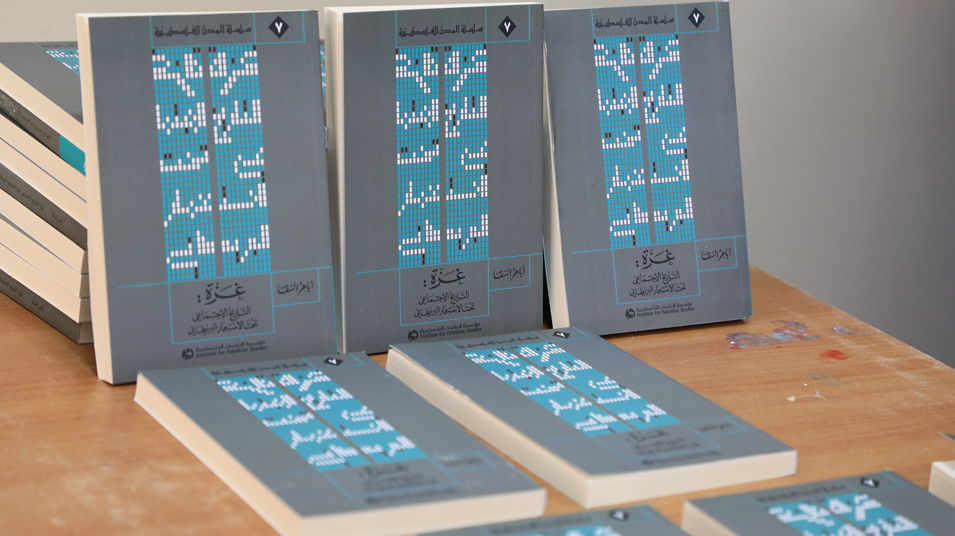Scholars, students review newly-released book on the social history of Gaza
Students, sociologists, and anthropologists delved into Professor of Social and Behavioral Science Dr. Abaher El-Sakka’s newly-released book, “Gaza: A Social History under British Colonial Rule, 1917–1948,” in a symposium held on Tuesday, September 18, 2018.
El-Sakka was joined by Lisa Taraki, a professor of social sciences at Birzeit University, who chaired the discussion and presented her own review of the book. She noted that “Gaza: A Social History” analyzes the social fabric of Gaza under the British Mandate, a study unique to this book.
“This book presents us with a micro-sociological look at Gaza from the late 1800s until the early 1900s - under the British rule - and I believe this is the first academic project of its kind,” said Taraki.
She added that the book – published by the Institute of Palestine Studies – remarkably approaches the relationship between the city’s elite and the general population, and their relationships to the occupying forces of that time.
Additionally, Taraki commented, the book dissects the mechanics of the social hierarchy of Gaza at that time, i.e., how the elites kept the general public at an arm’s length through commerce or kinship with other members of the elites.

Originally from Gaza, El Sakka remarked that writing the book was “some way to give back to my city,” which, as he noted, was not featured in studies on Palestinian modernity, with the lion’s share of the spotlight going to Haifa or Jaffa.
“With my book, I wanted to introduce a different perspective than other socio-historical studies. The micro-sociological perspective that the reader is presented with is by design, and the general, encompassing perspective is intentionally disregarded to focus the scope of the study,” contended El Sakka.
“Gaza: A Social History under British Colonial Rule, 1917–1948” outlines the social history of Gaza City during the period of British colonial rule from 1917 until the Nakba of 1948. It presents a new reading from a previously un-attempted sociological perspective and reveals the socio–economic and political structures of the city, its population, and its families, and explains the mechanism of reproduction of social notability.
Through a chronological socio-historical analysis of Gaza City, the study makes visible the processes of modernization and the complex relations between local and British colonial policy, in addition to examining the impact of these processes of modernization on the governance of public space, architectural reconfigurations, and public services.







